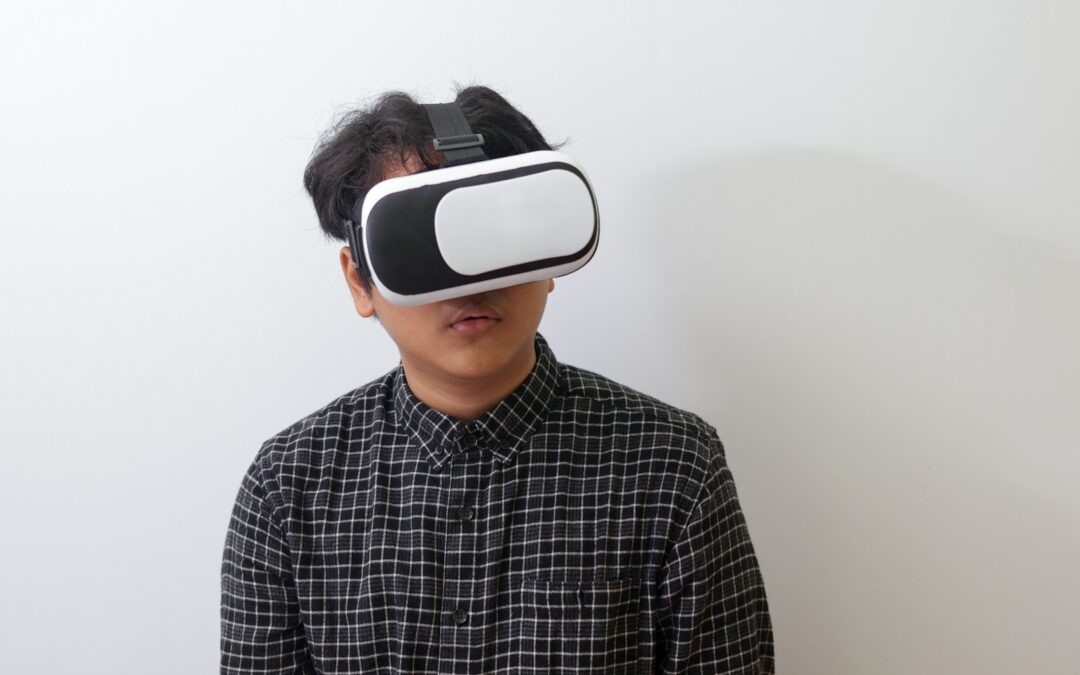Addressing Ethical Challenges in VR Therapy and Rehabilitation
The Rise of Virtual Reality in Healthcare
Exploring Ethical Issues in virtual reality healthcare is revolutionizing therapy and rehabilitation. VR technology offers immersive experiences that can enhance treatment outcomes, making it an invaluable tool in modern medicine. In Saudi Arabia and the UAE, where technological innovation is a key driver of economic and social development, the adoption of VR in healthcare is rapidly gaining momentum.
Saudi Arabia’s Vision 2030 underscores the importance of leveraging advanced technologies to improve healthcare services. VR applications in therapy and rehabilitation can help patients recover more effectively by providing engaging, interactive environments that promote physical and mental well-being. For instance, VR can simulate real-life scenarios to aid in physical rehabilitation or provide calming environments for mental health therapy. These applications are particularly beneficial for patients who may find traditional therapy methods less engaging or effective.
Similarly, Dubai is making significant strides in integrating VR into its healthcare system. The city’s ambitious initiatives to become a global hub for medical innovation include the use of VR for pain management, physical therapy, and mental health treatments. By providing patients with immersive experiences that can distract from pain or simulate therapeutic exercises, VR enhances the effectiveness of treatment and improves patient outcomes. However, as VR becomes more prevalent in healthcare, it is crucial to address the ethical issues it presents.
Ethical Issues in VR Therapy and Rehabilitation
One of the primary ethical issues in VR healthcare is the potential for data privacy concerns. VR systems collect a vast amount of personal data, including biometric information and behavioral patterns, which can be highly sensitive. Ensuring that this data is securely stored and handled is paramount to protecting patient privacy. In Saudi Arabia and the UAE, robust data protection laws must be enforced to safeguard patient information and prevent unauthorized access.
Another significant ethical challenge is the potential for addiction and over-reliance on VR. While VR can provide effective therapy and rehabilitation, there is a risk that patients may become overly dependent on these immersive environments, leading to reduced engagement with real-world activities. This is particularly concerning for mental health treatments, where a balance between virtual and real-world interactions is crucial for holistic recovery. Healthcare providers in Riyadh and Dubai must be vigilant in monitoring patients’ use of VR and ensuring that it complements, rather than replaces, traditional therapeutic methods.
The accuracy and reliability of VR content are also critical ethical considerations. Inaccurate or misleading VR simulations can have detrimental effects on patients’ treatment outcomes. For example, if a VR environment used for physical rehabilitation does not accurately simulate real-world conditions, it may not effectively prepare patients for real-life scenarios. Therefore, it is essential that VR content used in healthcare is developed and reviewed by medical professionals to ensure its accuracy and efficacy.
Addressing Ethical Challenges in VR Healthcare
To address the ethical challenges posed by VR in healthcare, comprehensive guidelines and regulatory frameworks are necessary. In Saudi Arabia, the establishment of ethical committees and regulatory bodies can ensure that VR applications in healthcare adhere to ethical standards. These bodies can provide oversight for VR projects, ensuring that they prioritize patient safety, data privacy, and the efficacy of treatment.
Public engagement is also crucial in addressing the ethical issues of VR healthcare. In the UAE, fostering a dialogue between healthcare providers, technologists, ethicists, and the public can help align the development of VR applications with societal values and expectations. This includes public consultations, participatory decision-making processes, and the inclusion of diverse perspectives in policy-making. By engaging the public, developers and policymakers can build trust and ensure that VR healthcare applications are developed transparently and ethically.
Education and training are essential components of addressing the ethical challenges of VR healthcare. Universities and research institutions in Riyadh and Dubai can incorporate ethics into their healthcare and technology curricula, preparing future healthcare providers to navigate the ethical complexities of VR. Training programs can focus on the principles of informed consent, privacy, and the societal implications of VR in therapy and rehabilitation. By fostering a culture of ethical responsibility, these regions can lead the way in developing a balanced approach to VR in healthcare.
Conclusion
The potential ethical issues related to the use of virtual reality in healthcare, particularly in therapy and rehabilitation, are complex and multifaceted. By implementing robust ethical guidelines, engaging the public, and prioritizing education and training, Saudi Arabia and the UAE can harness the power of VR technology to improve healthcare outcomes while addressing the associated ethical challenges. Through collaborative efforts and a commitment to ethical practices, these nations can ensure that their advancements in VR healthcare contribute to a future that is equitable, inclusive, and respectful of patient rights.
#EthicalIssuesInVirtualRealityHealthcare #VRTherapyEthics #VRInRehabilitation #SaudiArabiaHealthcareTechnology #UAEMedicalInnovation #RiyadhVRApplications #DubaiHealthcareAdvancements #AIInHealthcare #BlockchainInHealthcare #TheMetaverseInMedicalTreatment #GenerativeAIInHealthcare #BusinessEthics #LeadershipInHealthcare #ManagementInHealthcareTechnology #ProjectManagementInMedicalTech

